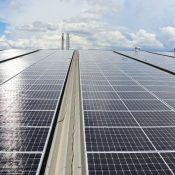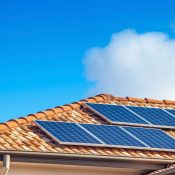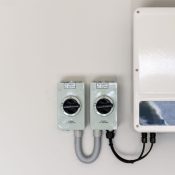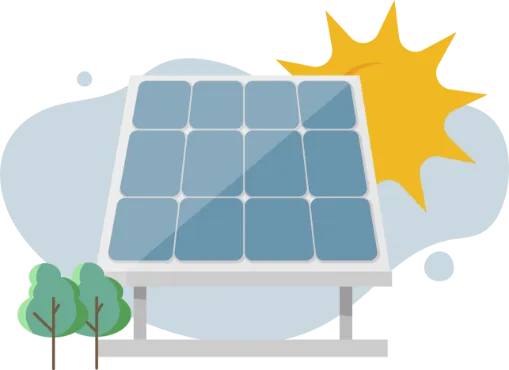Solar Panels With Integrated Smart Technology: Benefits And Options
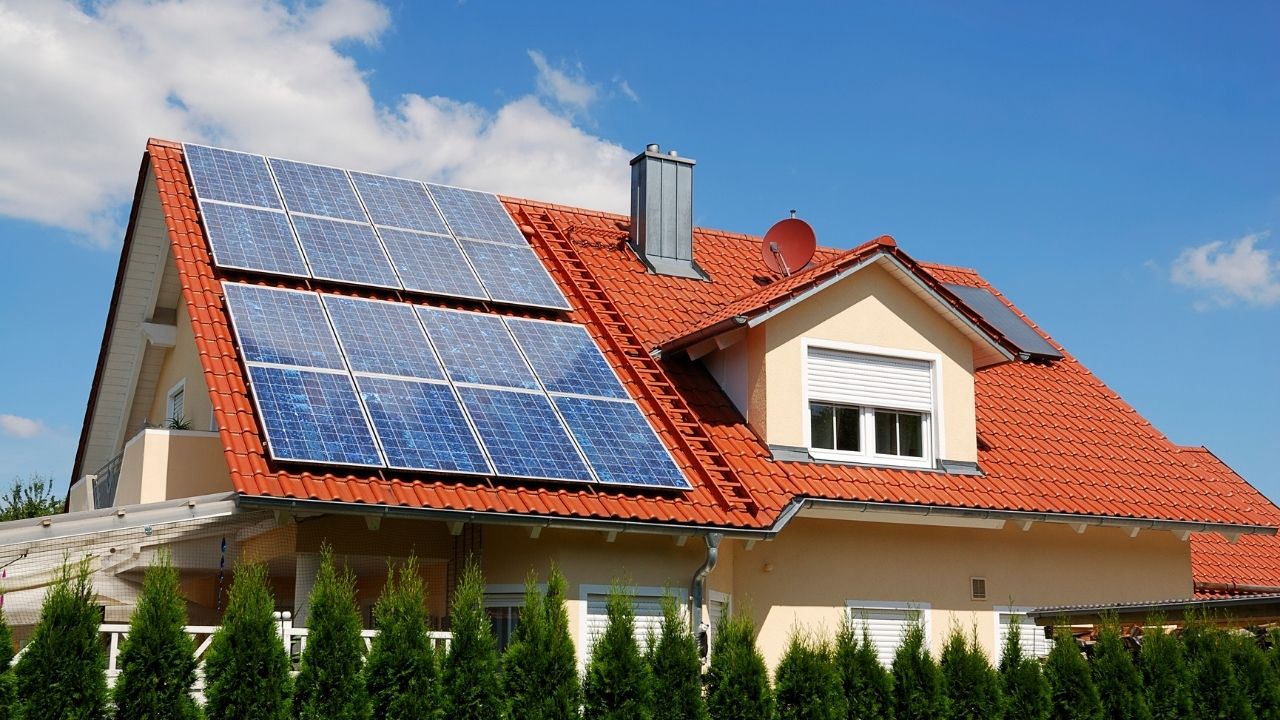
Have you ever wondered if there’s a smarter way to harness solar energy for your home? Imagine combining the power of solar panels with the latest smart technology. Welcome to a new era where solar energy meets innovation.
In this blog, we will look into the fascinating world of solar panels integrated with smart technology. We’ll explore how this synergy not only revolutionises energy consumption but also opens doors to different benefits and options. From advanced energy management to seamless integration with smart home systems, these advanced solutions offer an efficient, cost-effective, and environmentally friendly approach to power your home.
Join us as we uncover the benefits, challenges, and the exciting future of smart solar technology, guiding you through making informed decisions for a sustainable and intelligent energy solution.
Advancements in Solar Panel Technology
Building on our exploration of the integration of solar panels with smart technology, let’s dive into the latest advancements in solar panel technology. The solar industry is rapidly evolving, bringing forth innovations that not only increase efficiency but also expand the applicability of solar panels.
One notable advancement is the development of perovskite solar cells. These next-generation solar cells offer a promising future due to their ease of production and ability to absorb different wavelengths of light. This means they can capture photons that traditional silicon cells cannot, potentially leading to higher efficiency in energy conversion. However, their sensitivity to environmental factors like oxygen and moisture has been a challenge, though recent advancements are improving their stability significantly.
Another exciting innovation is the concept of agrivoltaics and floatovoltaics. Agrivoltaics involves integrating solar panels into agricultural land, benefiting both energy production and agriculture. Similarly, floatovoltaics refer to floating solar panels on bodies of water, like reservoirs and canals. These installations not only generate electricity but also improve water quality, reduce evaporation, and provide cooling to the panels for better efficiency.
Smart Home Integration and IoT
Linking back to our introduction’s theme of harnessing solar energy smartly, the integration of solar panels with smart home technology and the Internet of Things (IoT) stands as a revolutionary step. This integration paves the way for advanced energy management and a more efficient, connected home.
Solar panels can now be part of a smart home ecosystem, where real-time energy monitoring is a key feature. Homeowners can track their solar energy production and consumption, gaining valuable insights to optimise energy usage. This data can be particularly useful for tailoring energy consumption to times of peak solar production, thereby maximising efficiency and minimising reliance on the grid.
IoT takes this a step further by creating a network of interconnected devices and sensors that communicate and exchange data. When solar panels are combined with IoT devices, such as smart meters, thermostats, and appliances, they form a comprehensive smart home system. This system not only monitors but also manages energy usage efficiently. For instance, appliances can be programmed to operate when solar energy production is at its highest, enhancing self-consumption of solar energy and reducing energy costs.
Together, advancements in solar panel technology and their integration with smart home systems and IoT herald a new era in energy efficiency and management. This synergy not only empowers homeowners with better control over their energy use but also contributes significantly to environmental sustainability.
Benefits of Smart Solar Panels
Following our discussion on the advancements in solar technology and its integration with smart homes and IoT, let’s focus on the specific benefits of smart solar panels. These panels signify a considerable advancement in how we harness solar energy, offering advantages that go beyond the capabilities of traditional solar systems.
Firstly, smart solar panels are designed for enhanced energy efficiency. They are equipped with technology that allows for more precise energy management, ensuring that the maximum amount of solar energy is converted into usable power. This results in a notable reduction in energy wastage and maximises the overall benefits of solar power.
Another key advantage is the real-time monitoring capability. Smart solar panels enable users to monitor their energy generation and consumption in the moment. This immediate feedback empowers homeowners with valuable insights into their energy usage patterns, allowing them to make more informed decisions about their energy consumption.
Moreover, smart solar panels often come with integrated energy storage solutions. This means excess energy generated during peak sun hours can be stored for later use, ensuring a consistent energy supply even when the sun isn’t shining. This feature is particularly beneficial for maintaining energy supply during peak demand periods or in areas with less predictable sunlight.
Custom Solar Panels and Smart Grid Integration
As we dive deeper into the world of smart solar technology, the concept of custom solar panels and their integration with smart grid systems emerges as a key development. This integration is a step forward in creating a more sustainable and efficient energy ecosystem.
Custom solar panels are tailored to meet specific energy requirements and are designed to optimise energy production by considering factors like roof space, angle, and orientation. This customisation leads to higher energy yields and improved efficiency compared to standard panels. Additionally, custom panels can be designed to blend seamlessly with a building’s architecture, addressing aesthetic concerns often associated with solar installations.
The role of smart grid systems in conjunction with custom solar panels is equally important. Smart grids are advanced energy management solutions that ensure efficient distribution and utilisation of electricity. They enable real-time monitoring of energy production and consumption, providing users with actionable data to optimise energy usage. Moreover, by connecting solar panels to the smart grid, surplus energy can be fed back into the grid, allowing users to earn credits or even supply energy to others in need.
Together, custom solar panels and smart grid integration represent a powerful combination. They not only enhance the efficiency and aesthetic appeal of solar energy systems but also contribute to a more reliable and resilient energy infrastructure. This synergy epitomises the future of sustainable energy, where technology and customisation converge to meet diverse energy needs while promoting environmental stewardship.
Challenges and Considerations
While the integration of smart technology with solar panels offers many benefits, it’s important to recognise the challenges and considerations that come with it. These factors are crucial to understand for anyone looking to embrace this technology.
One of the primary challenges is the upfront installation costs. Solar energy systems, especially those integrated with smart technology, can require a significant initial investment. While there are long-term savings and environmental benefits, the initial cost can be a barrier for many individuals and households.
Another consideration is the suitability of your property for solar panel installation. Factors like geographic location, the amount of daily sunlight, and the structural integrity of your roof can all impact the feasibility and efficiency of a solar installation. In areas with limited sunlight or properties with roofs not suited for solar panels, alternative solutions or additional considerations may be necessary.
Moreover, integrating solar panels with smart technology requires a level of technological understanding and engagement. Users need to be comfortable with managing and interpreting data from smart devices to optimise their energy usage effectively.
The Future of Solar Energy and Smart Technology
Linking back to our discussions on the advancements and benefits of smart solar panels and their integration with custom solutions and smart grids, the future of solar energy and smart technology looks incredibly promising. As we continue to innovate and refine these technologies, we can expect them to become more accessible, efficient, and integral to our daily lives.
The ongoing development of solar technology is likely to lead to further reductions in costs, making solar energy more accessible to a broader range of people. In addition, as smart home technologies become more commonplace and user-friendly, the integration with solar energy systems is expected to become more seamless and intuitive.
Furthermore, the potential for smart solar energy systems to contribute to the development of smarter, more resilient energy grids is immense. With the ability to feed excess energy back into the grid and provide real-time data for energy management, these systems can play a crucial role in the transition to more sustainable and reliable energy networks.
Conclusion: A Brighter Tomorrow with Smart Solar Solutions
Solar panels integrated with smart technology represent a transformative advancement in energy management and efficiency. Through advancements in solar panel technology, smart home integration, and the synergy with IoT, we are witnessing a new era in sustainable energy solutions.
Custom solar panels and smart grid integration further enhance this landscape, offering tailored solutions for diverse needs. While challenges like upfront costs and property suitability exist, the benefits and future potential are immense. Embracing this technology not only contributes to environmental sustainability but also offers long-term cost savings. If you’re considering a smarter, greener energy solution for your home, exploring solar panels with integrated smart technology is an investment towards a sustainable and technologically advanced future. Take the advancement into smart solar energy – the benefits are clear, and the future is bright.
Planning a switch to solar energy?
Contact Going Solar now and Get Free Advice & Quote Within Minutes!
Frequently Asked Questions
Contact Going Solar Now!
Joe Brennan
Founder @ Going Solar
Joe Brennan, the founder of Going Solar, is dedicated to making solar power mainstream in Ireland and meet SEAI objectives. With a focus on affordability and sustainability, he is bringing renewable energy solutions to homes, reducing costs & environmental impact.
Recent Posts

